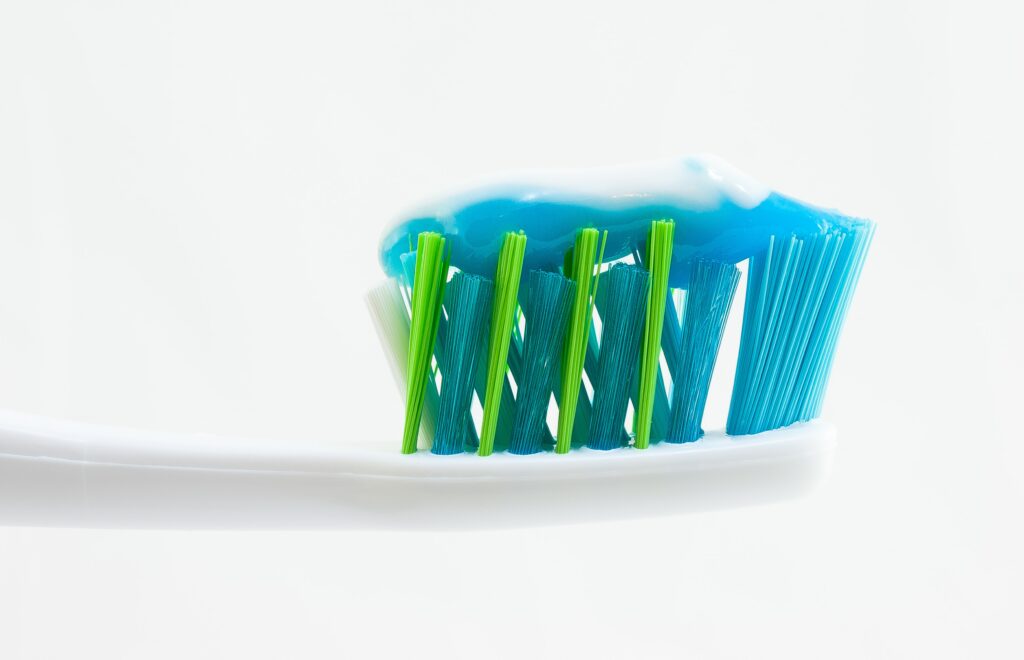Alzheimer’s is a really difficult and frustrating disease for everyone involved – individuals, family members, and caregivers. There are some ways to improve their living conditions and ease their suffering so that patients who suffer from Alzheimer’s can still live as normal and happy a life as possible in comfort.
One of the most common things to take a nosedive when a person gets diagnosed with Alzheimer’s is their dental care. As a dentist who has been practicing dentistry for over 20 years, I love to help families and caretakers figure out ways that they can help their loved ones who have Alzheimer’s to maintain a healthy oral care routine. Here are my tips for caregivers who want to help their patients to keep an oral care routine so that your loved ones with Alzheimer’s can have a healthier mouth.
Make Instructions Easy to Understand

A common hurdle for patients with Alzheimer’s to overcome is that they forget simple tasks like how to brush their teeth. You can explain how important oral care is and keep them from giving up on it by making sure your instructions are easy to follow and take it step by step. Simply telling patients to brush their teeth can be more harmful than helpful if a patient has forgotten how. It will make them feel worse without being constructive and addressing the root of the problem.
Try breaking the process down instead. If you walk them through easy and small steps, like “Hold your brush by the handle.” And “Gently squeeze the paste onto the bristles.” you can help them regain their confidence.
Instead of being a taskmaster who tells them they need to do things, become a teacher who helps them learn how to do them. Make sure they know how to brush all of the different places in their mouth.
If necessary, teach them by example. If verbal instructions still aren’t getting through to them, then hold your own toothbrush and show them instead. Go slowly and allow them to mirror your actions with their own brush so they know how to brush their teeth.
Brush and Floss Regularly

Be sure that they are brushing at least twice a day and flossing at least once a day. This is a great way to keep someone with Alzheimer’s healthy. You can employ your instructional methods to ensure that they are having an easier time with this routine.
If they are unable to do this for themselves, then you may need to do it for them. The same thing applies. Explain everything to your patient in easy to understand details and walk them through the process slowly. Do it to yourself first if that helps, so they can see what you are going to do and why.
Make Sure They Eat a Healthy Diet

A healthy diet is critical for oral hygiene and care, especially among elderly patients and those with Alzheimer’s. It can be much harder for these patients to maintain healthy diets on their own, though.
If you are a caregiver to a patient with Alzheimer’s, prepare meals that are well balanced and have a high concentration of nutrients, so they can keep their teeth and bones stronger and reduce the risk of tooth decay and osteoporosis. Avoid foods that are high in sugars because this will decay older teeth much more rapidly than younger ones.
Pack their diet with proteins, fruits, vegetables, whole grains, dairy, and healthy fats. This is important for oral care and especially important for patients with Alzheimer’s.
Find an Experienced Dentist and Visit Regularly

Everyone should be able to see a doctor and dentist that they feel comfortable with, but this is especially true for patients with Alzheimer’s. Having a good relationship with your doctor is crucial to feeling respected and being willing to return when problems arise.
Finding a few dental professionals who have training and experience working with patients who have been diagnosed with Alzheimer’s will help everyone immensely. You can be sure that this dentist is aware of all of the special patient needs and medications that come with their diagnosis and can create an effective oral care routine based on those needs.
They will also be more well versed in communication and using the short and easy to understand instructions to help their patients. They can also eliminate the dry mouth and other oral side effects of Alzheimer’s medications.
Regular dental visits are a vital part of any dental care routine, especially for patients with Alzheimer’s. They may have mouth pains or dental issues that they are unable to communicate so visiting a dentist at least twice a year will help catch those problems quickly.
Guest Written by Dr. Amanda Tavoularis (dentably.com)
Dr. Amanda Tavoularis has been committed to excellent dentistry for over 20 years. She studied at the University of Washington School of Dentistry and has gone on to complete over 200 hours of study at the prestigious Kois Center located in Seattle. She belongs to numerous dentistry networks include the American Dental Association and the Wellness Dentistry Network. With being a female dentist on the Dentably team, Dr. Amanda can provide her expertise for dental care for women as well as expecting mothers. She has a son of her own and is committed to providing the most accurate information possible for patients.



